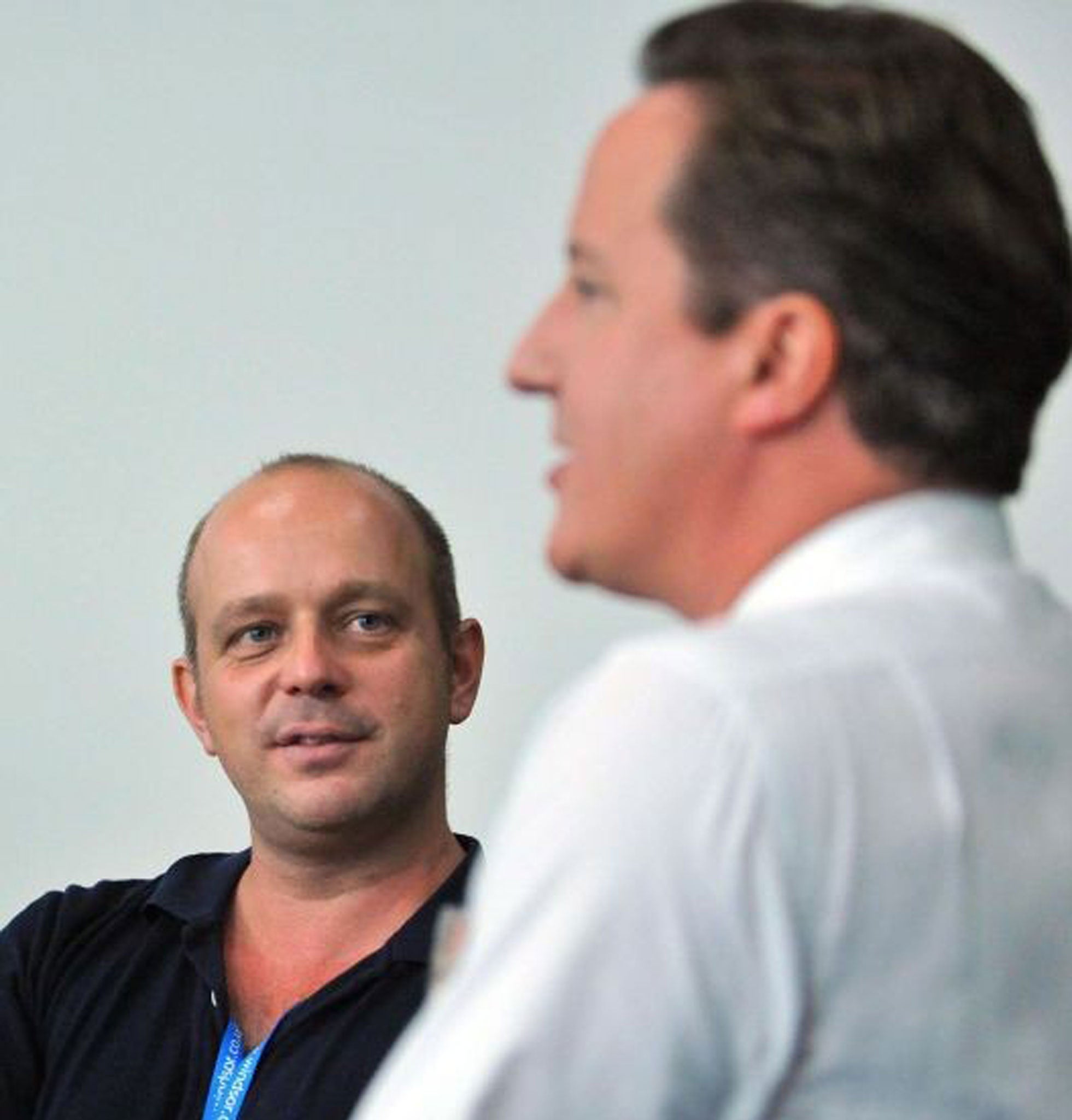More Human by Steve Hilton, book review: Watch out for a Tory revolution, Russell Brand
David Cameron's former adviser has some sensible ideas – beneath his book's bluster

Your support helps us to tell the story
This election is still a dead heat, according to most polls. In a fight with such wafer-thin margins, we need reporters on the ground talking to the people Trump and Harris are courting. Your support allows us to keep sending journalists to the story.
The Independent is trusted by 27 million Americans from across the entire political spectrum every month. Unlike many other quality news outlets, we choose not to lock you out of our reporting and analysis with paywalls. But quality journalism must still be paid for.
Help us keep bring these critical stories to light. Your support makes all the difference.
Steve Hilton is best known to Britons as David Cameron's policy adviser, creator of such ideas as the Big Society and the effort to connect with the disaffect young, which came to be dubbed "hug a hoodie". He left in 2012 for California, where his wife Rachel Whetstone got a top job as PR for Google – she moves next month to a similar post at Uber.
He has set up CrowdPac, a hi-tech start-up that helps voters to find candidates who suit them. He has produced a book that seems to me designed to promote it.
His big idea is encapsulated in the title, More Human – Designing a World Where People Come First. He takes his experience of working with businesses and government, graciously concluding that much of what he advised them to do was wrong: "The current system simply isn't working… It's a crisis and it demands a big shake-up, not steady-as-she-goes."
Instead of incremental change, he wants a revolution. It is Russell Brand, but with directly the opposite message: to change things, "you need to run for office. Run for Parliament."
So what is to be shaken up? Just about everything: government, schools, health, business, poverty, inequality, childhood, and so on. Each is dissected with a mixture of anecdotes and outrage: anecdotes mostly from his own experience, the outrage directed mostly against obvious targets such as factory farming and bankers' salaries. It is all a bit relentless, for there are answers to everything, from how to tackle inequality by focusing on mobility rather than outcomes, to reducing the impact of pornography on the young by limiting children's access to the internet.
It is also easy to mock. Take his view that executives working for banks that have received taxpayer support should be paid senior civil servant salaries of £100,000 to £200,000, rather than the astronomical ones that they get. That led to quite a few headlines in the UK, and many would agree. But this call for pay restraint does rather clash with his own remuneration when working for David Cameron, £180,000 a year, and that was back in 2006.
Or take the number of people involved in this book, aside from the two co-writers. On a quick count there were 102 people cited in the acknowledgements as having helped, with unsurprisingly, "one person above all others: David Cameron".
Yet if you can stomach the hectoring and the self-promotion, there are a lot of sensible ideas in this book trying to get out. For example, he praises the work of the Danish architect Jan Gehl in Copenhagen. Gehl's company has pioneered schemes in cities all around the world that aim to make urban spaces more friendly to pedestrians, including the re-routing of traffic in Times Square in New York. He praises home-visiting services, looking at the Nurse-Family Partnerships programme in the US, where a dollar invested produces more than five-fold return. Many would welcome his call for better animal welfare standards and his highlighting of the connection between factory farming and poor diet.
But the assertion that people can make a better world by running for political office, that this enables ordinary people to get "their hands on the levers of power", is surely absurd. If the past few years have taught us anything, it is that people in government pulling levers does not change much – there is nothing connected at the other end. Instead we need people in every walk of life, including politics, using common sense and decency to guide the way they behave.
Join our commenting forum
Join thought-provoking conversations, follow other Independent readers and see their replies
Comments